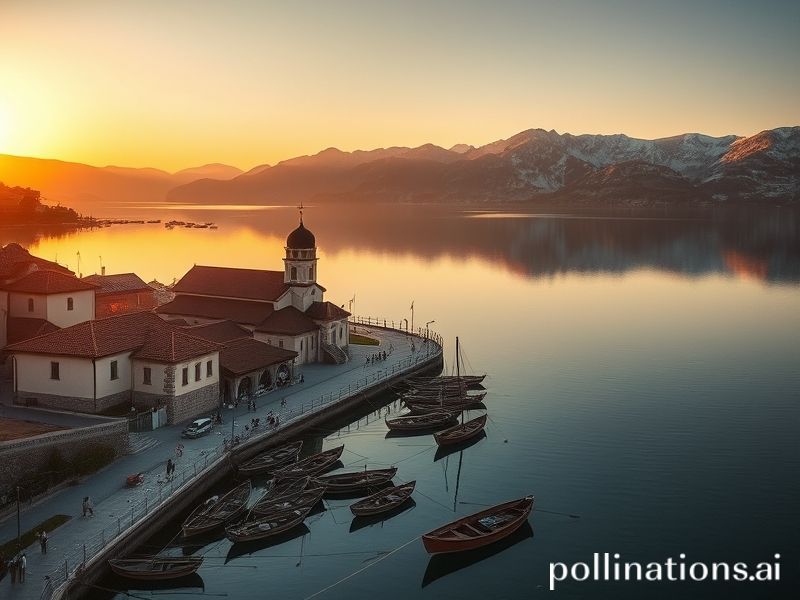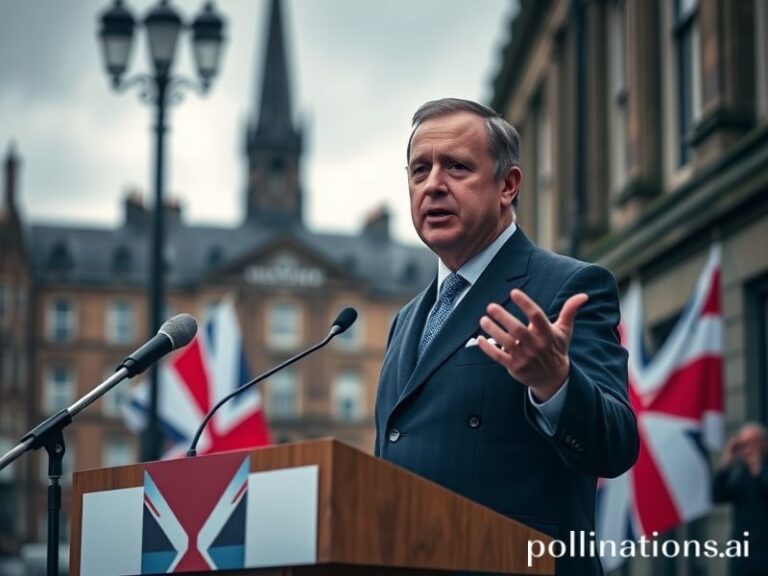North Macedonia: The Tiny Nation Teaching Superpowers How to Spell—and Pay—For Lithium
North Macedonia has spent the last thirty years being politely asked to re-introduce itself at every diplomatic cocktail party on the planet. The country—formerly “The Former Yugoslav Republic of Macedonia” (try fitting that on a lapel pin)—finally settled on the name “North Macedonia” in 2019 after Greece threatened to veto its NATO dreams. Athens insisted the original name implied territorial designs on its own northern province, which is a bit like Texas worrying that New Mexico is plotting a hostile takeover because it dared to use the word “Mexico.” The Prespa Agreement ended the standoff, proving once again that nothing unites humanity like the desire to get into a military alliance that hasn’t fought a conventional war since the invention of the Nokia 3310.
Geographically, North Macedonia is a land-locked Balkan puzzle piece wedged between countries that have, at various points, invaded, annexed, or simply borrowed it for the weekend. To the west, Albania eyes the Albanian-majority pockets with the casual possessiveness of a cat watching a laser pointer. Bulgaria to the east insists Macedonian is merely a dialect of Bulgarian, a linguistic claim roughly as welcome in Skopje as a Jehovah’s Witness with a clipboard. Serbia, meanwhile, treats the whole region like a slightly embarrassing family WhatsApp group: everybody’s related, nobody agrees whose turn it is to host Christmas, and the shared history folder is permanently muted.
For the rest of the world, North Macedonia’s biggest export used to be existential confusion at border control. Now it supplies lithium—lots of it—buried beneath the scenic wasteland of the Jazhince mine. The EU, desperate to wean itself off Chinese batteries and Russian gas, is courting Skopje with the same ardor it once reserved for Greece’s olive oil subsidies. Brussels’ green-energy strategy, it turns out, runs on the same resource that powers teenage angst: heavy metal. Environmentalists in Prilep worry the excavation will turn their mountain vistas into an open-plan quarry; European diplomats respond with PowerPoint slides featuring stock photos of smiling children and wind turbines, which is the continental equivalent of sliding a twenty across the table and whispering, “Buy something nice.”
Meanwhile, the United States has discovered that tiny North Macedonia is the perfect size for a geopolitical paperweight. Washington fast-tracked its NATO accession in 2020, adding one more flag to the glass-and-steel headquarters in Brussels and one more headache to Moscow’s map. Russian disinformation campaigns—sprinkling Slavic Facebook pages with tales of Western satanists and mandatory microchip implants—have met with mixed results. Macedonians, already fluent in conspiracy from decades of Ottoman, Yugoslav, and cosmic disappointment, mostly shrug and return to their rakija. Still, the Kremlin continues to poke the Balkan bear for the same reason people scratch lottery tickets: statistically hopeless, but you never know.
In the grand casino of globalization, North Macedonia is that modest table near the bar where the stakes are low but the drama is exquisite. Its population—roughly two million, plus however many cousins are currently “just visiting” from Melbourne—exports nurses to Germany, code to Silicon Valley, and melancholy indie pop to anyone still romantic enough to click “play.” Remittances keep the economy afloat, which means every Western Union kiosk is effectively a sovereign wealth fund with fluorescent lighting.
So what does North Macedonia tell us about the world in 2024? First, identity remains the most volatile commodity on the market—more flammable than oil, more addictive than TikTok. Second, when great powers need to greenwash their supply chains, even the smallest pawn can demand a queen’s ransom. And finally, if you ever feel insignificant, remember there’s a country that spent three decades arguing over a preposition just to get a seat at someone else’s security council. The rest of us merely argue over Wi-Fi passwords.
Welcome to the club, North. Try not to trip over the baggage everyone else left at the door.







